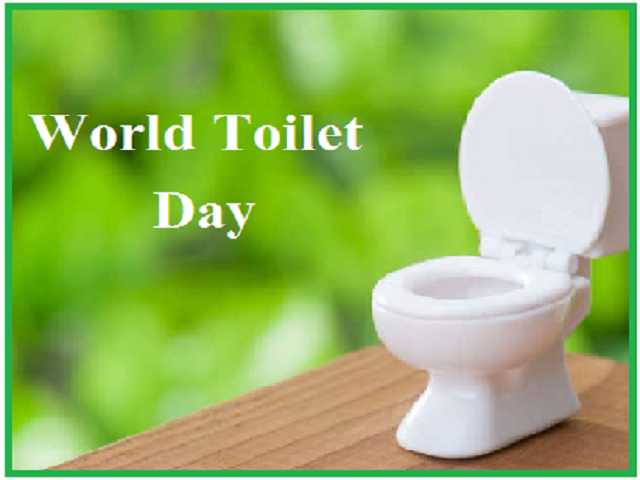Covid-19 helpful in World Toilet Day campaign – Physician

By Aminah Carew
World Toilet Day (WTD) exists to inform, engage and inspire people to take action against global sanitation crisis.
The UN General Assembly declared World Toilet Day, an official UN day in 2013, after Singapore had tabled the resolution before the UN’s General Assembly. Prior to that, World Toilet Day had been established unofficially by the World Toilet Organization in 2001.
Toilets are important because access to a safe functioning toilet has a positive impact on public health, human dignity and personal safety especially for women. Sanitation systems that do not safely treat excreta allow the spread of soil transmitted and water borne diseases such as cholera, typhoid, schistosomiasis and dysentery.
According to statistics, more than 673 million people still practice open defecation for lack of toilets. Even where toilets exist, 80% of all wastewater returns to the environment without any treatment. And 40% of the world’s population doesn’t have in-home handwashing facilities.
Over 800 children under the age of five die every day from diarrheal diseases. Adults are also susceptible to waterborne illness. In 2017, almost 1.6 million people died from diarrheal diseases globally. Now the risk of unwashed hands is increased by COVID-19.
As a way of commemorating World Toilet Day, an annual global event organized by the United Nations to raise awareness of the crucial role that sanitation plays in reducing the spread of deadly diseases, NatureNews Online Media spoke with Dr Kabir Jatto, a resident doctor at Aminu Kano Teaching Hospital, on November 15, 2020.
According to Dr. Jatto, the UN has not fully achieved its aim of ensuring sanitation is improved around the world especially in developing countries as unsafe habits are still being used to dispose bodily waste.
He said, “Even though the aim of the UN is to reduce or eradicate sanitation problems which are very common in our country and Africa in general, the World Toilet Day has not been as successful as they envisaged because open defecation, unsafe use of toilet and improper handwashing habits are still being practiced.”
He mentioned that in 2015, Bauchi was declared the dirtiest state in Nigeria, and as a surgeon he has treated numerous cases of typhoid perforations which are due to typhoid illnesses.
“Typhoid illnesses may manifest into intestinal problems causing perforated intestine which will need surgical repair.
“Some of the patients diagnosed with this illness are not able to survive it because of its severity.
“This led to a discussion with my colleagues on possible prevention methods and solution to reduce the death rates on the disease.
“It was recommended that open defecation and refuse dumping be abolished and potable water should be provided for the populace by the government,” Dr Jatto explained.
He added, “The world has gotten away with a lot of unfriendly health habits but with Covid-19 and the publicity around it, many people can now see the significance of how simple practices such as careful handwashing and sanitizing can prevent the pandemic. The World Toilet Day is not just about toilets but will help us to understand the effectiveness of good sanitation.”
He recommended that there should be strict laws against open defecation which may attract fines or punishment to all offenders.
Also, government should provide basic amenities so people can be encouraged to engage in safe toilet practices.
Dr Jatto advised people to use alternative methods to dispose of bodily waste and keep their surroundings tidy.
